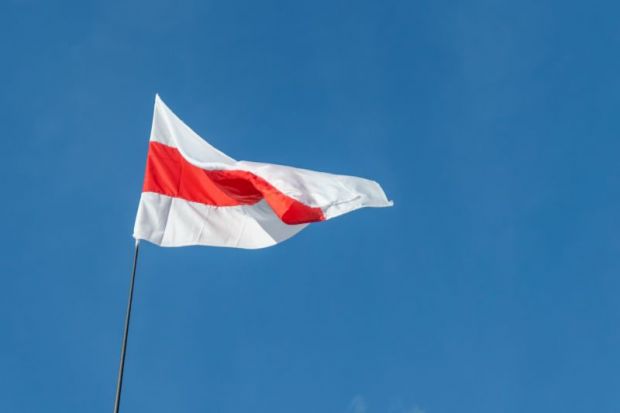Belarusian universities are targeting protesting students with a wave of expulsions after the country’s president called on them to crack down on dissent.
Since claiming victory in an August election widely seen as fraudulent, Alexander Lukashenko has clung on to power despite months of protests, often led by students, culminating in a national strike this week that has engulfed campuses.
The situation is unfolding rapidly and details were hard to verify, but there were multiple reports on Belarusian news sites and Telegram channels of students being expelled for taking part in the protests.
“Knowing the regime and the way it operates, I’m quite confident we are on the brink of massive student expelling,” said Maksimas Milta, a political scientist at the European Humanities University in neighbouring Lithuania.
For decades the regime has used university expulsion as a tool to suppress opposition student leaders. Now, Mr Lukashenko, who has been president for more than a quarter of a century and has the power to appoint rectors, appears to be trying the same tactic, demanding on 27 October that students and academics taking part in unauthorised protests be ejected.
There have been reports this week of expulsions at institutions including the Belarusian State Medical University, the Belarusian State Academy of Arts, and Brest State Technical University. None of these universities responded to a request for clarification from Times Higher Education.
However, there are some signs that the president’s grip over university top brass is insecure.
On 20 October, Mr Lukashenko fired and replaced the rectors of three institutions: the Belarusian State University of Culture and Arts, the Belarusian National Technical University, and Minsk State Linguistic University (MSLU), the scene of some of the most outspoken faculty resistance to the regime. This follows the replacement of rectors at three medical universities in September.
“We are not going to pretend that everything is well in universities,” the president said, announcing new rectors last week. “We know all the problems. You know them as well as I do.”
At the beginning of the protests, “the management of the universities was somewhat reluctant to express an open opinion”, said Marina Ragachewskaya, an English literature professor at MSLU who has protested against the regime. “They tried to play both ways.”
“But now with the change in some of the rectors, there’s been more pressure on the management and rectors. The former president [Mr Lukashenko] demands that they should do something, and execute his orders,” she said.
In a sign of cracks at the top, there have been scattered reports suggesting that some senior university managers are refusing to be complicit in the punishment of student protesters.
On 29 October it was reported at a dean at the Belarusian State University of Informatics and Radioelectronics, Marina Lukashevich, had quit her position after refusing to sign an expulsion order.
Several reports also suggest that some deans have been pushed to step down after voicing support for the protests. On 20 October it was reported that a deputy dean at the Belarusian State Pedagogical University, Nikolay Strekha, was told to delete sympathetic posts on social networks including Facebook, and then ultimately pressured into leaving his position.
Register to continue
Why register?
- Registration is free and only takes a moment
- Once registered, you can read 3 articles a month
- Sign up for our newsletter
Subscribe
Or subscribe for unlimited access to:
- Unlimited access to news, views, insights & reviews
- Digital editions
- Digital access to THE’s university and college rankings analysis
Already registered or a current subscriber? Login







